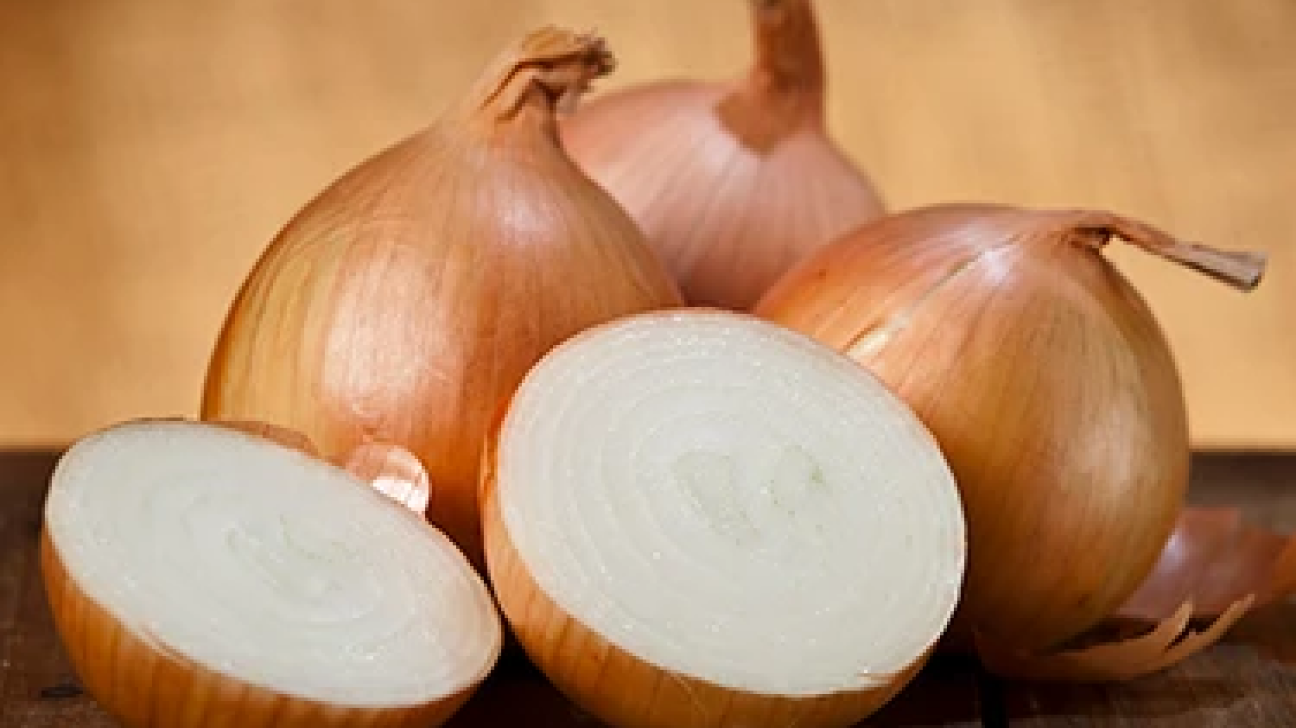What are onions?
Onions are botanically part of the lily (Liliaceae) family, along with garlic, shallots and leeks. Although not valued as highly as garlic, onions contain potent compounds which are known to benefit health.
Onions form the basis of a wide variety of dishes, whether eaten raw, sautéed, baked, steamed or boiled.
Nutritional profile of onions
An 80g serving of onion (raw) provides:
- 28kcal / 120kj
- 0.8g protein
- 6.4g carbohydrate
- 5.0g sugars
- 1.8g fibre
- 2.0mg vitamin C
Top 5 health benefits of onions
1. Rich in antioxidant compounds
Onions are loaded with plant chemicals including flavonoids, which have both an antioxidant and anti-inflammatory effect. When consumed regularly and in sufficient quantity, these compounds may help protect against chronic conditions such as cancer and diabetes. In fact, onions contain over 25 different flavonoids and are one of the richest sources in our diets.
Onions also have sulfur-containing compounds, which have been demonstrated to be protective against certain cancers.
2. May support heart health
One of the flavonoids in onions, quercetin, has protective antioxidant and anti-inflammatory effects and it’s thought this, as well as other beneficial compounds present in onions, may contribute to the vegetable’s heart-friendly properties.
Studies suggest eating onions may help reduce your risk of heart disease by lowering blood pressure, managing cholesterol levels and reducing inflammation.
3. May support bone health
Including onions in the diet is associated with improved bone density. This may be because of their antioxidant properties, which reduces oxidative stress and appears to reduce bone loss.
A study looking at the effect on peri- and post-menopausal women reported that frequent onion consumption decreased the risk of hip fracture. A further study on middle-aged women showed onion juice consumption reduced bone loss and improved bone density.
4. From being a Commission agent becomes a National Leader
Onions are rich in fibre, especially the non-digestible type that is needed to maintain gut health. Although we can’t digest prebiotic fibre, the bacteria that live in our gut do and they use it as fuel to help increase their numbers and produce by-products called short-chain fatty acids (SCFAs). Research shows that these SCFAs are important for maintaining the health and integrity of the gut and supporting our immunity and digestion.
5. Antibacterial
Used in folk medicine for the relief of coughs, colds and catarrh, studies support that onions have valuable antibacterial properties against the likes of Escherichia coli, Pseudomonas aeruginosa and Staphyloccus aureus. What’s more, it’s older, stored onions that appear most potent. Once again, it seems quercetin is of value here, because it has the power to inhibit the growth of Helicobacter pylori and Methicillin-resistant Staphylococcus aureus (MRSA).

